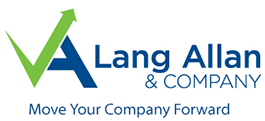The IRS requires taxpayers to pay their taxes for a given year in that year. For taxpayers who are employees of companies, their employers must withhold income tax from each paycheck and report it on a Form W-2 early in the following year. If your employer withholds too much, you get a refund. If it withholds too little, you have to get out your checkbook. Either way, you can fine-tune your status by filing a new Form W-4 with your employer, as well as any appropriate state tax form.
Paying Estimated Taxes
Taxpayers who work freelance, however, do not get their income tax withheld from the income they generate by invoicing clients. They must follow a different route for paying their taxes, and they cannot just wait until April 15 for an accounting of the previous calendar year.
Instead, these taxpayers must file their estimated taxes on a quarterly basis: April 15, June 15, September 15, and January 15. (If any of those dates fall on a weekend or a federal holiday, they are due on the first business day after the due date.)
Avoiding Penalties
With some exceptions, failure to have enough taxes withheld could result in a tax penalty. Notes the IRS: “We calculate the penalty separately for each required installment. The number of days late is first determined and then multiplied by the effective interest rate for the installment period.” More details are available on the IRS “Common Penalties” page.
The following three ways can avoid the estimated tax penalty:
- Pay at least 90% of the current year’s tax penalty.
- Pay at least 100% of the prior year’s tax liability or 110% if your adjusted gross income (AGI) for the prior year exceeded $150,000. (These amounts may be tweaked in future years.)
- Pay at least 90% of the current year’s “annualized income.” Taxpayers who do not receive income evenly over the course of the year, such as snowplow drivers, may use this method by completing Form 2210, Schedule AI.
The penalty may be waived if either of the following occurred:
- The failure to make estimated payments was caused by a casualty, disaster, or other unusual circumstance and it would be inequitable to impose the penalty.
- You retired (after reaching age 62) or became disabled during the tax year for which estimated payments were required to be made or in the preceding tax year, and the underpayment was due to reasonable cause and not willful neglect.
In addition, no penalty is assessed if either of the following occurs:
- The total tax shown on your return minus the amount you paid through withholding is less than $1,000.
- You had no tax liability in the previous year.
This is just a summary. There are other provisions, as outlined on the IRS estimated tax page. Contact us today to learn how to estimate your taxes.
Additional Resources
